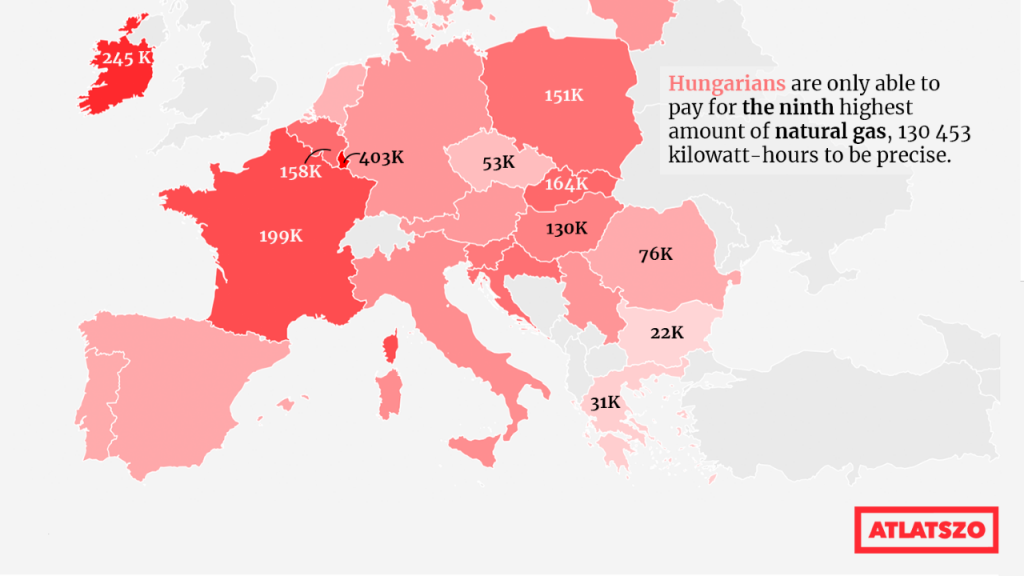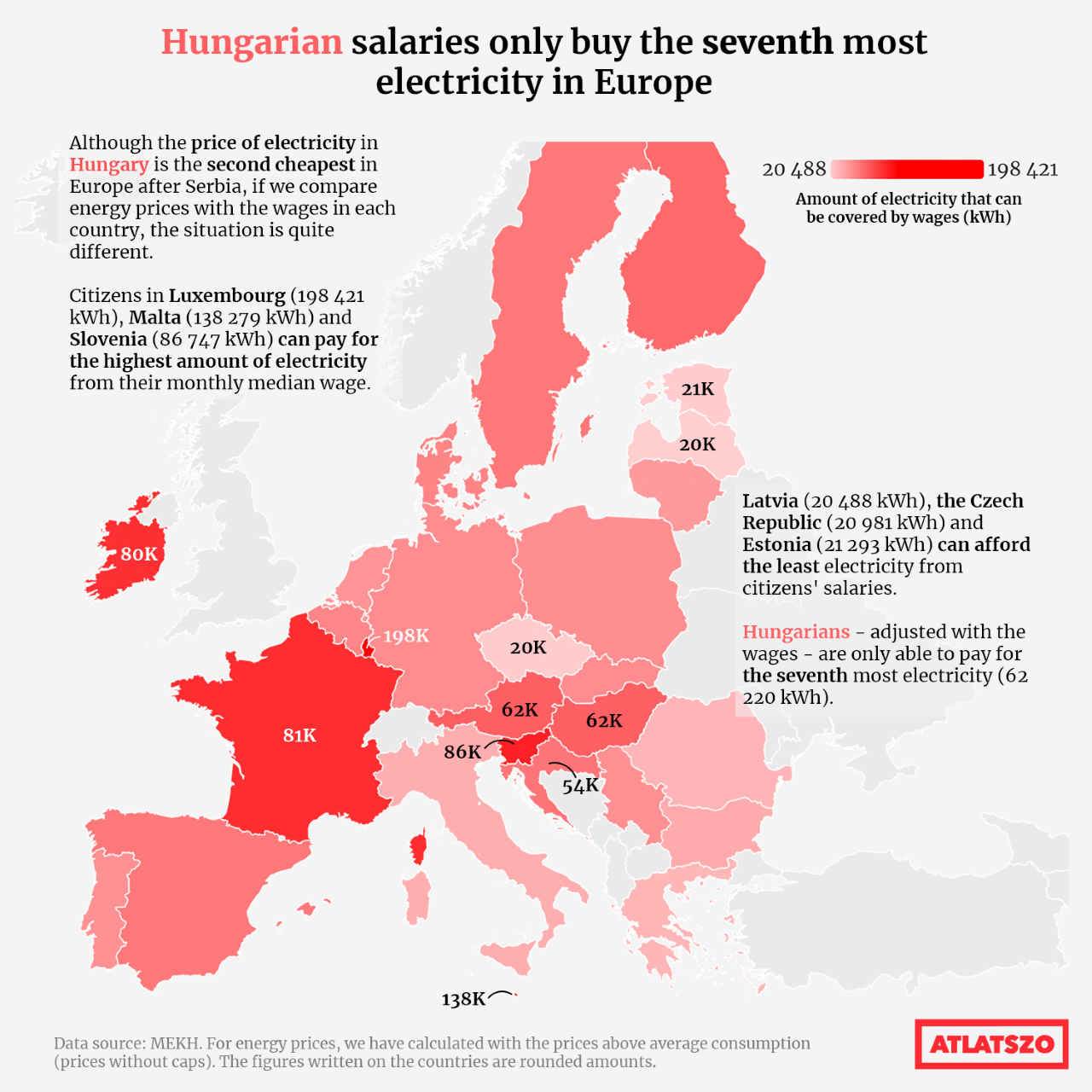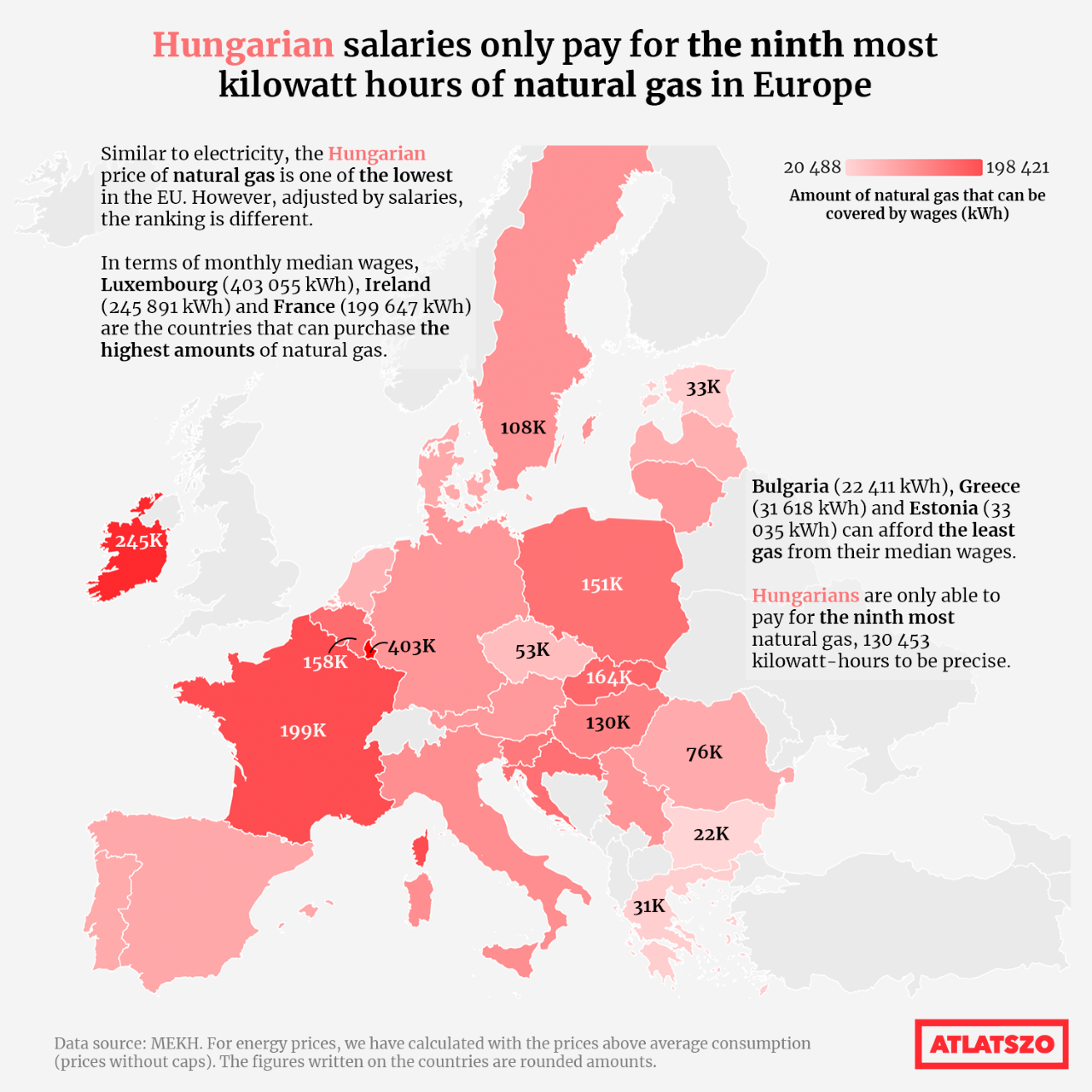The https://english.atlatszo.hu use cookies to track and profile customers such as action tags and pixel tracking on our website to assist our marketing. On our website we use technical, analytical, marketing and preference cookies. These are necessary for our site to work properly and to give us inforamation about how our site is used. See Cookies Policy
Compared to the miserable wages, capped household energy prices are still expensive for average Hungarians
According to the latest data from September, Hungary has the lowest natural gas price in Europe with the energy price caps (also the third cheapest price without the government’s regulation), and the second cheapest electricity price with the price caps (third cheapest without them). However, if we compare these figures with our salaries, the results are very different.
Not surprisingly, we are less able to pay for energy prices on a Hungarian salary than other European citizens. Our median wage is the third lowest in Europe, at around €6,600 a year, while the EU average is almost three times that, at €18,372 a year. If we look at how many kilowatt-hours of energy people in each country can afford with their monthly salaries, Hungary is only seventh for electricity and ninth for natural gas.

During this summer, the Hungarian government has announced that the price caps for the electricity and gas prices will be scrapped for high usage households (households with higher consumption than the national averge). Thus, in the case of Hungary, there are two types of gas prices and two types of electricity prices.
As claimed by the Hungarian Energy and Public Utilities Regulatory Office (MEKH), the reduced price of electricity is the second lowest in Hungary: 9.22 euro cents per kilowatt-hour, and 10.63 euro cents per kilowatt-hour above the national average consumption (i.e. consumption above 120%).
The ranking is similar for natural gas: with the price cap we have the cheapest price with 2.55 cents/kilowatt-hour, and above average comsuption the third cheapest price with 5.07 cents/kilowatt-hour.
EU: higher energy prices, but much higher salaries
However, the lower our gas prices, the less the government talks about our salaries, which are among the lowest in Europe.
If we look at median wages – which may give a more accurate picture of reality than the average wage – we see that, of twenty-eight countries
Hungary (tied with Bulgaria) has the third lowest median salary, 6614 euros per year.
The only countries with lower median wages than ours are Romania (€4832) and Serbia (€3733). The highest salaries in Europe are in Luxembourg (€42 482), Denmark (€32 088) and the Netherlands (€28 441). The EU average is almost three times the Hungarian average, at €18 372 per year.
A low salary makes cheap prices quite expensive
We have calculated how many kilowatt hours (kWh) of electricity or natural gas people in each country can buy with their salaries. The results show that we are actually less well off than the government likes to claim.
We used the energy prices without caps, as the calculations of G7 suggest that up to half of the Hungarian households could be affected by the price increase.
Although the Hungarian electricity price is among the cheapest, when salaries are taken into account, Hungarian wages only buy the seventh most electricity in Europe. In terms of numbers, our salaries account for 62 220 kilowatt hours.
In contrast, the countries where citizens can buy the most energy are Luxembourg (198 421 kWh), Malta (86 747 kWh) and Slovenia (86 747 kWh). The wages in Latvia (20 488 kWh), the Czech Republic (20 981 kWh) and Estonia (21 293 kWh) can buy the least amount of electricity.
The results are worse in the case of natural gas: the data adjusted with wages puts us in the ninth place in Europe. Our monthly salary can buy us 130 453 kilowatt hours of natural gas.
The highest earning country – Luxembourg – is the country where people are able to buy the most amount of natural gas (403 055 kWh), followed by Ireland (245 891 kWh) and France (199 647 kWh).
According to our figures, Bulgaria (22 411 kWh), Greece (31 618 kWh) and Estonia (33 035 kWh) have the lowest amounts of natural gas that they can pay for from their monthly earnings.
Therefore, when making international comparisons of energy prices, it is also important to take into account the fact that different countries have different salaries, because energy prices alone do not mean anything.
Written and translated by Luca Pete. The original, Hungarian version of this story can be found here.



